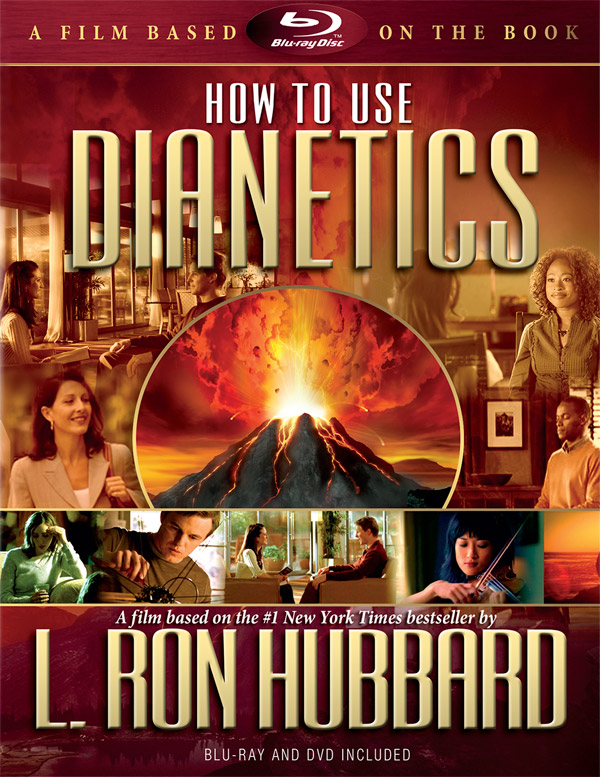The 20-Second Trick For Dianetics
Table of ContentsHow Dianetics can Save You Time, Stress, and Money.What Does Dianetics Mean?The Greatest Guide To Dianetics4 Simple Techniques For Dianetics
I could not ever before not wish to receive anything that comes to mind for you- if it was or else, I would not be sitting here with you, doing this. I not just might never have a problem, or otherwise intend to hear something that comes to mind for you, yet I'm totally excited to know every concept, every thought, every image or sensation that arises or manifests for you- do not ever before think or else, and if somehow you do, please just allow me understand! Often, you may have a thought, and photo, idea or incident turn up that does not seem to respond to the concern, or relate to it, however nonetheless, constantly do inform me regarding it, and as we continue, the significance will arise for you.This is fundamental in the basis of handling, and the subject of this conversation: the basic duties of the counselor and the customer: The basic duty of the counselor is, in contrast to "common training", not to control, which suggests to impose and/or hinder, however to rather work from the basis of EMPOWERING THE CUSTOMER.

A Biased View of Dianetics
John Mcmasters shared this standard reality splendidly well in among his lectures on Power handling, where he discusses just how he was asked what this "unique flair" was that he had for giving such fantastic sessions; he had to believe regarding that for a minute, and identified that it was what he wasn't doing, along with what he was doing: he had not been reviewing, judging, computing, or as a matter of fact, creating any ideas, let alone verbal expressions, after providing the command and while waiting for the computer to finish their answer to their complete satisfaction; he was, simply and only, existing with the computer, and completely interested.
The role of the therapist, showed; that was his "special propensity". I have actually had my own experience which showed me this well, really beforehand in the game. In 1982, having lately completed my training and teaching fellowship on New Age Dianetics, I was running this on a PC, and there was a point in the session where (being a bit wet behind the ears not yet having numerous hours under my belt as a professional auditor) the PC seemed to be "taking as well lengthy" to share anything vocally after I offered him a command.
This secret transformed out to be one of the most valuable contribution that John ever before made to the topic of therapy or auditing (Dianetics). In my humble opinion, it is the best contribution that any person has ever before made to these subjectsthe application is totally non-judgemental, non-evaluative, and empty of any kind of tip, suggestions or opinion.no preconditioned agenda for people, or 'degrees' that they need to do
In Scientology we prided ourselves on not assessing for individuals. All that from this source actually suggested was that the auditor did not Vocally examine for the Computer in session.
The Definitive Guide to Dianetics

Any individual who had actually ever seen John audit can not help yet discover an unique high quality in his auditing."The client's basic function is to be there with the objective of relocating the instructions of their spiritual goals, and to openly and completely share and experience whatever materializes for them in addressing the concerns and implementing the directions in the handling.
This is something to process as needed. Additionally, people often have previous experience and/or brainwashing in auditing/processing which, in some means, and to some degrees, really misinforms them right into attitudes, ideas and habits patterns that protect against the full awareness of these duties, and so they will often tend to hinder the expressing of what comes to mind, as in the instances offered above - Dianetics. * The first, and possibly primary instances of mis-indoctrination leading to less than completely smooth and effective sessions, can be discovered in particular elements of the training routines, or "TR's":"TR's" are commonly an individual's initial, or at the very least early, experience in Scientology, and while I will certainly take place to clarify what I view as the imperfections in principle and technique, however, often tend to be substantially healing, done as they are offered (Hubbard urges that "TR's are not refining, they are training", however factually, they are both processing AND training)
Alan Walter made similar observations, and improved on these with his "Presence Processes". There is no "failing", and no rejection of the truth of this being handling. The focus, as it should be, gets on read this article experiencing the various other individual's existence. All the symptoms which get a "fail" in doing "TR-0" are merely the being's efforts to withstand the other individual's visibility, and instead than being bothered and badgered with "Flunk", which enforces "failing!" on the being, one simply needs to be urged to "stick their feet in the water a little much deeper", to progressively rehabilitate their capacity and readiness to totally share and experience "being right here", or "presence", with others.
Little Known Questions About Dianetics.
